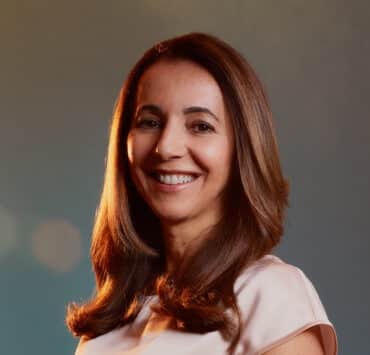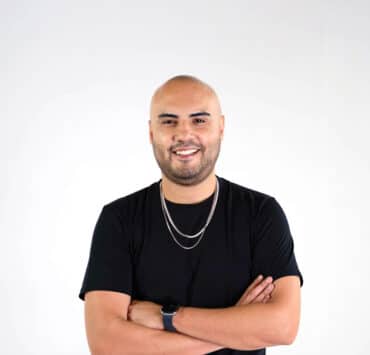|
Getting your Trinity Audio player ready...
|
Much before her rise to chief diversity, equity, and inclusion officer at Tufts Medicine, Rosa Colon-Kolacko was a humble girl learning from her circumstances. She was a child raised by her mother in Puerto Rico with very limited economic stability. Her mom was an orphan, was not able to finish high school, and did not speak English.
Having seen her mom’s experiences and traveled the world, Colon-Kolacko has always been aware of how unprepared healthcare systems can be to care for people from different cultures and languages. In fact, she used to be her mom’s interpreter while they were living in other countries. “We experienced often unequal treatment in healthcare settings,” she says.
But when her mother experienced a deadly stroke, Colon-Kolacko found herself serving as a cultural translator from ten thousand miles away. It was a wake-up call. Colon-Kolacko’s daughter, who was a teenager in high school at that time, was the one who took her grandmother to the hospital, and they paid no attention to how scared she was.
“There was limited empathy for her or us as a family, when in our culture we take care of our elders until they die,” Colon-Kolacko remembers. “This experience inspired me to make this my purpose: to reimagine how we can deliver care with an equity lens and consider cultural needs in health encounters.”
“Regardless of limitations of our upbringing, we should have a vision, have a plan, work hard, and advocate so that we can change the world—one person, one encounter at a time.”
Rosa Colon-Kolacko
During her time living in the UK, Colon-Kolacko recognized a stark contrast in cultural values. “Latinos value our families; we grow up in homes alongside our grandparents as a unit, and we care for them as they get older. When someone in our family is sick, we come as a group because, in our culture, that’s how we like to heal people.”
It’s this type of cultural understanding that Colon-Kolacko describes as “cultural humility and competence,” which in healthcare describes the ability to not only provide care to patients with a variety of health issues and diverse values but also adapt the delivery of care in a way that meets their social, cultural, and linguistic needs. “This is how minorities suffer every day in our country, and I felt like I had to do something about it,” she says.
The devastating and unequal impact of the COVID-19 pandemic in communities of color—more cases, hospitalizations, and deaths—magnified preexisting disparities and exacerbated those vulnerabilities. Today, communities of color are even further behind in overall health.
According to Colon-Kolacko, at health centers, between 2019 and 2020, screenings for cervical cancer declined by 15 percent, colorectal cancer by 17 percent, and depression (and follow-up care) by 19 percent. The number of patients with controlled blood pressure decreased by 16 percent, while the number of patients with dangerous hemoglobin A1c (HbA1c) levels increased by 31 percent. There was a 51 percent drop in HIV patients seen for follow-up care within the recommended ninety days after diagnosis.
“This is just the beginning of a post-pandemic wave of healthcare challenges in the communities we serve,” Colon-Kolacko says.
Without a second thought, Colon-Kolacko left her fifteen-year career in global pharmaceuticals behind and shifted to healthcare systems where she was a senior change management and learning leader.
“It’s my mission in life—to inspire leaders to leverage differences, to help our colleagues at work be their authentic selves, and to develop future generations of global leaders, including supervising doctoral students to [help them] serve diverse communities, improve equity for people, [and enable them] to live healthy lives,” says the chief diversity, equity, and inclusion officer at Tufts Medicine.
She adds, “My philosophy is to have a positive attitude and hope. Regardless of limitations of our upbringing, we should have a vision, have a plan, work hard, and advocate so that we can change the world—one person, one encounter at a time.
“The work of DEI is endless, but I wake up every day energized to see how Tufts Medicine is contributing to a better society disrupting how care is delivered.”
Rosa Colon-Kolacko
In her role, Colon-Kolacko strives to provide culturally competent and equitable care, improve health, and reduce disparities. “We need more Hispanics in healthcare—there are great careers in this industry, and health systems need us to build trust in our communities,” she says. “By exposing Hispanic youth to the many different roles within healthcare, giving them access to internship opportunities and volunteer experiences, and providing scholarships, our Center for Diversity, Equity, and Inclusion encourages them to dream big.”
She believes that Hispanics must unite and not allow ethnic differences to cause divisions. Executives have the responsibility to advocate for others, she says, and to do that, they must build the pipeline.
“It goes back to our culture. Latinos are very humble, but we need to inspire the new generation to pursue healthcare professions,” Colon-Kolacko explains. “This industry needs our superpower (cultural agility) to build healthy communities, as we are one of the highest growths in the population in the US.
Tufts Medicine relies on community health workers, a community benefits departments, and alliances with community partners to implement health equity projects, including outreach, education, and providing grants to address social determinants of health needs. Colon-Kolacko believes the key for success lies in education.
“Hispanics are the key influencers of the future but in order to influence, we need to be highly educated, meaning that we need to increase the number of Latinos who have master’s degrees and PhDs as well as the number of nurses and doctors,” she says.
Through Tufts Medicine’s DEI Academy, employees are provided valuable opportunities to build a culture of inclusion. “We have a goal to increase the increase the diversity of our leaders and workforce to improve readiness of internal diverse high potentials for leadership positions,” Colon-Kolackos says. “Last year, we improved diversity in our leaders by 20 percent by partnering with our HR team. This year, our goal is to increase leadership by 25 percent.”
Today, Colon-Kolacko, who also serves as a professor at Thomas Jefferson University (where she dedicates her time to chairing dissertation committees and mentoring minority students as they complete their doctoral programs), credits her energetic approach to an innate passion for DEI.
“The work of DEI is endless, but I wake up every day energized to see how Tufts Medicine is contributing to a better society, disrupting how care is delivered, building belonging in our workforce, growing diverse talent to represent the communities we are honored to serve, and transforming healthcare with an equity lens,” she says. “We are giving hope, transforming lives, and helping create an equitable world where all people can be healthy and live their best lives.”
Leveraging Technology
Tufts Medicine recently rolled out MyTuftsmed, a mobile app that allows patients to view their healthcare information, records, and test results in real time. Additionally, through partnerships with EPIC and Amazon, Tufts can accommodate the specialized needs of its diverse patient population.
“We designed it with our patients who speak different languages in mind,” Rosa Colon-Kolacko says. “Patients can select their preferred languages, send messages to their providers in any language, and use chatbots to use voice activation to speak their own language and get their questions answered.”
Patients can also use the app to schedule and check in to appointments online, facilitating this process for Limited English patients. “Our goal is to become the care destination for multicultural communities, a place where they can receive frictionless care experiences with dignity and respect—enabled by digital technology,” Colon-Kolacko explains.

